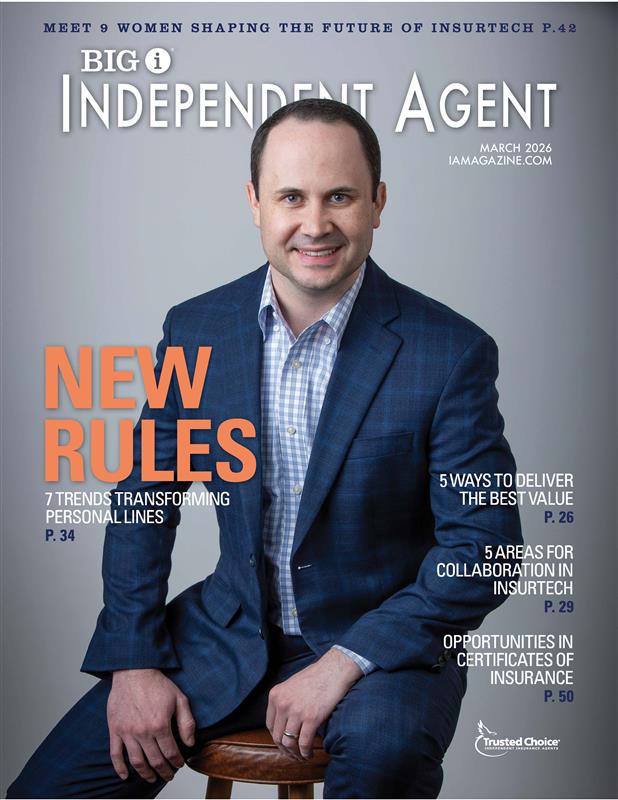Does Woman Who Sued Geico After Contracting STD Have a Case?

By: Tim Dodge
There appears to be more to the story about the Missouri woman who filed suit against Geico after she contracted a sexually transmitted disease (STD) as a result of unprotected sex in another person’s Geico-insured vehicle. The coverage question is more complicated than it first appeared.
As was noted in the article, “Geico Sued by Woman Who Contracted STD in Car Insured by Carrier,” the ISO personal auto policy PP 00 01 09 18, would likely not provide liability coverage for this loss. The insuring agreement in the liability coverage part of the form limits coverage to damages for which an insured becomes legally responsible because of an auto accident.
There seems to be little doubt that the plaintiff suffered a bodily injury, as the form defines that term with “bodily harm, sickness or disease.” However, the plaintiff does not allege that her illness resulted from an auto accident.
If there was no auto accident, the ISO form does not provide coverage. However, it bears repeating that there may be significant differences between two insurance policies offered by different carriers, which may appear to be the case here.
A search of filings in the NAIC System for Electronic Rates & Forms Filing (SERFF) for the state of Missouri turned up a copy of the policy form that Geico may have sold to this insured. The form is the carrier’s Missouri Family Automobile Insurance Policy, form number A30MO (12-05). The Missouri Department of Insurance has approved a newer edition of this form, but the plaintiff in this case was diagnosed before the newer edition was available.
The words used in the Geico form are different from those in the ISO form. Here is a comparison:
ISO | Geico |
| “Bodily injury” means bodily harm, sickness or disease, including death that results. | Bodily injury means bodily injury to a person, including resulting sickness, disease, or death. |
| We will pay damages for “bodily injury” or “property damage” for which any “insured” becomes legally responsible because of an auto accident. | Under Section I, we will pay damages which an insured becomes legally obligated to pay because of: 1. Bodily injury, sustained by a person, or; 2. Damage to or destruction of property arising out of the ownership, maintenance, or use of the owned auto or a non-owned auto. |
The phrase “auto accident” is missing from the Geico insuring agreement. Before we get to any potential exclusions, the key questions are:
- Did someone sustain bodily injury, including resulting sickness or disease?
- If yes, did the bodily injury arise out of the use of an owned auto?
- If yes, is an insured legally obligated to pay damages?
It’s undisputed that the plaintiff became ill with a disease. It’s also undisputed that she and the insured were inside the insured’s owned auto at the time. And it’s undisputed that the insured and the plaintiff had reached an agreement in March under which the court awarded her damages of $5.2 million, leaving the insured free to pursue recovery from Geico, which has moved for a new trial and appealed the judgment.
It appears that the answer is “yes” to all three of these questions. A quick review of the policy exclusions did not turn up one relevant to this loss. Therefore, the insuring agreement possibly extends to include the loss.
One note of caution. A policy condition states:
3. ASSISTANCE AND COOPERATION OF THE INSURED
The insured will cooperate and assist us, if requested:
(b) In making settlements; …
Only at his own cost will the insured … assume any obligation or incur any cost other than for first aid to others.
According to news reports, Geico has said that it was not aware that the two parties had reached a settlement agreement until afterward. The carrier has labeled the process of reaching the agreement a “collusive and non-adversarial arbitration proceeding.” The door seems to be open for them to argue that the insured assumed an obligation or incurred a cost, and he therefore did so at his own expense.
I have not seen the court filings, depositions and other evidence in this case. There is much we do not know about it. However, there are two things we do know that we can all learn from:
- Personal auto insurance policies are not identical to each other. This insurance is not yet a commodity.
- An insured who desires coverage must comply with policy conditions.
This litigation may run for some time. The carrier’s failure to mimic ISO’s wording has potentially left it vulnerable to covering an exposure it did not contemplate.
Tim Dodge is assistant vice president of research and information at Big I New York.










